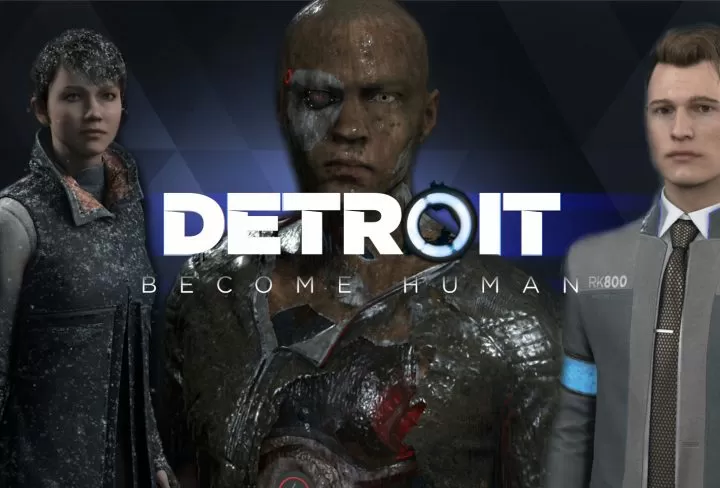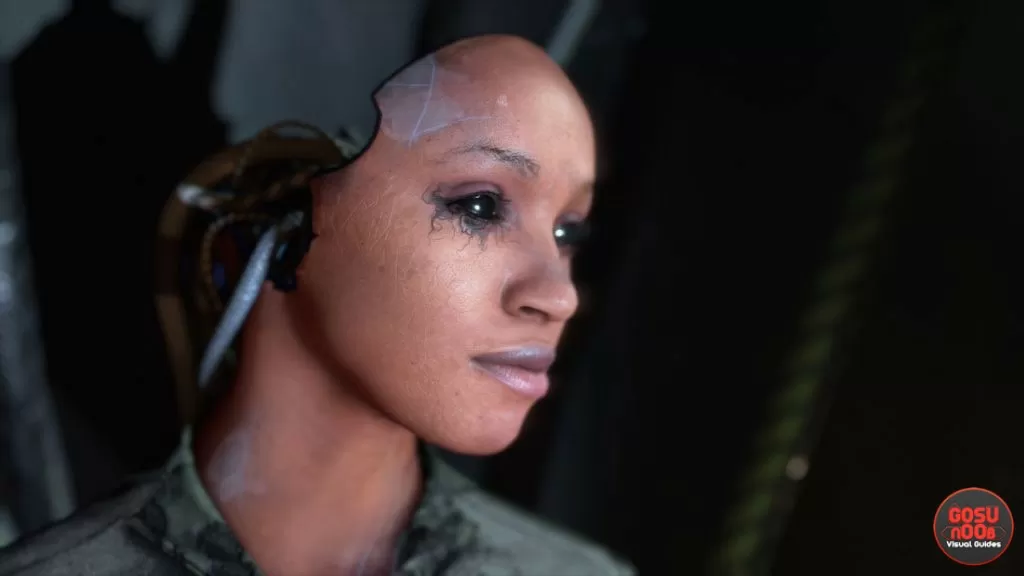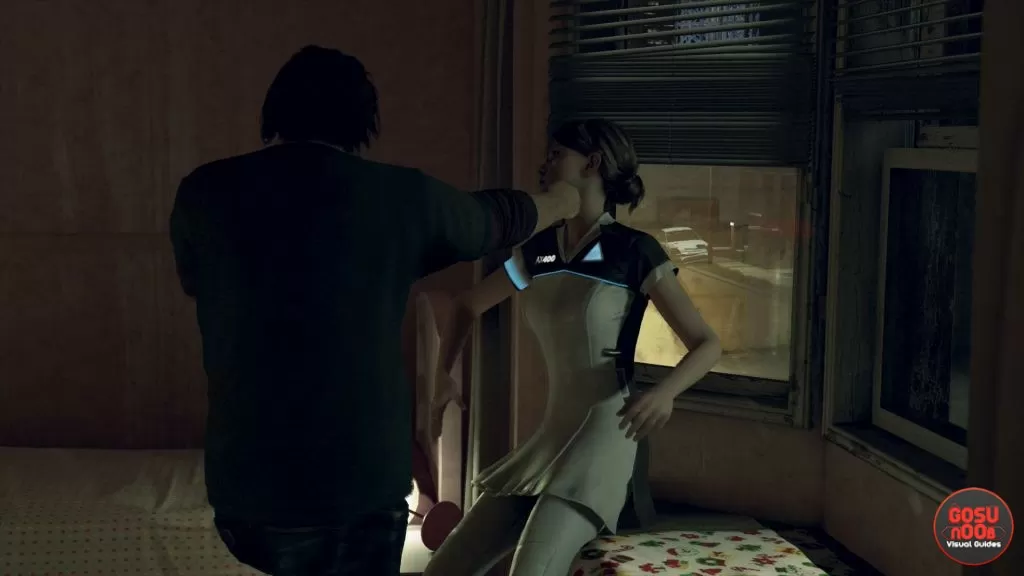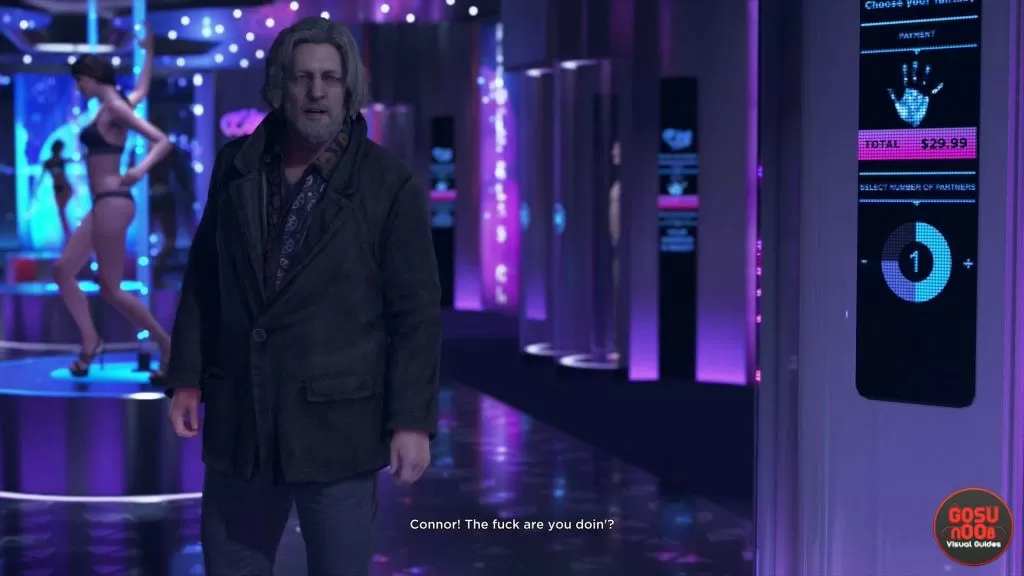Detroit: Become Human review – My guilty pleasure
Detroit: Become Human is my guilty pleasure. It is the latest game from Quantic Dream, the makers of unique adventure games or interactive movies, depending on who you ask. Playing one of their previous games always posed a question of whether you were watching a very long series of cutscenes or being an active participant in the story. As someone believing that gameplay is an integral experience of video games, I was not a fan of their work. With these preconceptions, I warily approached Detroit: Become Human. By the end of it, I found myself having a marathon last session because I couldn’t stop until I saw the story through to the end. I really didn’t want to like this game, but by the end of it, I was very happy I experienced it. Since the most important aspect of the game is its story, I will write this review without any late-game story spoilers. If you want to know the story of the game, you should experience it for yourself in full.

Androids are robots that are made to look and act like humans. Detroit: Become Human shows us a world where androids are an everyday item. They are in every pore of the future society, filling in for humans wherever hard work or danger is involved. They are now our road workers, maids, infantry or space explorers on inhospitable planets. All androids are produced by the first trillion-dollar company called Cyberlife and cost about as much as your average car. It is also important to know that they are made so that they can pass the Turing test, which means that their behavior is indistinguishable from that of a human. They are also a cause for record high unemployment levels (37% if I remember correctly), but, at the same time, production and the economy boom is at their highest levels. Various groups of humans are rapidly becoming hostile towards the androids, yet everyone uses them because of how convenient they prove to be.

We follow the story and play the roles of three androids, all made for different purposes and living in different conditions. We first meet Connor, an experimental model made to be a detective and help police investigations. His only task is to try and find out why there are more and more androids starting to disobey humans and become deviants. Kara is a maid android model created to help around the house, watch your kids and perform other domestic tasks. She begins her journey as a maid for Todd, an abusive drug addict that has a very young daughter Alice. We are lastly introduced to Markus, who is a caretaker of an elderly artist. Through chance and choices you make in the game, Markus turns into a deviant that can become the decisive figure of the future of androids everywhere.
Quantic Dream games have little gameplay. In Detroit: Become Human we, perhaps, have the most gameplay we ever had in any of their games. Still, it is just walking around looking for clues that will lead to quick time events. The crux of the gameplay is making choices in the story. In their previous games, making those story choices didn’t always feel like you were actually doing anything. Outcomes tended to be very similar. This is not true for Detroit. Some of the choices you make can have vastly different outcomes later in the game.

This makes Detroit: Become Human the best game Quantic Dream has made so far. I did not expect this at the beginning of the game. The first third is filled with clichés of systematic oppression of a group of beings. Androids are machines after all, or are they? It felt like I was just watching a run of the mill Netflix documentary that discusses the human race’s failure to be decent. We have oppression of androids because they took our jobs and, since they are machines and our property, we can treat them in the worst way possible . Kara’s story takes us through having terrible parents abusing their children and that, although terrible and hard to watch, is nothing new in the great scheme of things. Even our detective android friend, with unique skills and abilities that every police force should welcome with open hands, is constantly berated and distrusted by human policemen.
Humans are horrible beings; tell me something I didn’t know, game. It is around the first third of the game that something happened to my skepticism. All the choices I have been making were constantly checking my own moral compass. What would I do if I was part of the group that is a witness to constant abuse? Stay obedient just to make it through the day? Do I help other androids even if that is against my instructions? Do I behave like a human or a non-emotional machine? Why have androids then, if you don’t want them to be human-like?

It is through making choices in the story and constantly questioning my own moral compass that I started becoming invested in each and every android protagonist I was playing. I started to care about what will happen to them and how they will go through important and horribly difficult points of their existence. It is through those choices that I started discovering things about myself as well and what kind of human being I am. I found that to be quite a unique experience coming from such a simple device as video games tend to be.
Aside from using oppression stories we are all very familiar with, Detroit: Become Human achieves this through high-quality acting, visuals, and musical score. All of those are worthy of any highly-rated TV series or movie. The lead actors did a wonderful job carrying the story forward. If I had to choose between Valorie Curry (who plays Kara), Jesse Williams (Markus) or Bryan Dechart (Connor), I really wouldn’t be able to pick my clear favorite. They all portrayed the growth of humanity in androids skillfully and helped the game be what it is.
Other than the main protagonists, I would like to mention the acting of Clancy Brown, who plays the role of a human detective named Hank who is involuntarily partnered with Connor the android. His acting produced a wonderful and relatable character with such ease that every scene he was in was pure delight. Another special mention goes out to Lance Henriksen, who plays a renowned artist and Markus’ mentor. It was nice to see him playing a human for once, because he left a great mark in cinema as being the android Bishop in “Aliens”.

Visuals are top notch in Detroit, and the game engine manages to fully transfer the acting of human actors into the 3D models on the screen. Together with the musical score that was non-intrusive, yet very enjoyable, I managed to get fully immersed into the world of Detroit. It took about 12-15 hours to finish the first playthrough and developers have stated that exploring all different versions of the storyline could take up to 40 hours.
Another feature I found to be very nifty, yet subversive in nature, is the storyboard at the end of every scene you play out. You get to see the forks in the road that you took, but also, you can see that there are things you didn’t do in key moments that could have had a drastically different result. On top of that, you can see the world stats of what other players did when presented with the same choices as you. This game comes out on May 25th, the same day as a law in the European Union that will require all online business to offer their visitors that data about them not be tracked. That same day we get a game that tracks moral choices, thousands of individuals will be making and sharing their own for all players to see.

Science fiction writers and artists in general have been using human-like robots as plot devices to discuss our own humanity for a very long time. From the Golem and Frankenstein to Isaac Asimov’s laws of robotics, Blade Runner’s Voight-Kampff test and Data in Star Trek people have been asking the question: what makes us human? David Cage uses all those stories in Detroit: Become Human. Basis of his story have been discussed and explored by masters of their craft in much better detail and with more weight. Still, despite using all the well known cliches of the what makes us human discussion, he manages to get away with it.
I really didn’t want to like Detroit: Become Human. I dislike games incapable of telling a story through gameplay and justifying that with being “cinematic experiences”. Stories of oppression, although haunting and powerful, are cliché. The science fiction component, in my opinion, is weak and unoriginal. The epilogue seemed a bit drawn out and felt like it took the punch out of the finalization of the main characters’ stories. Despite all that, I was very happy that I experienced this game.

I don’t know what kind of magic Quantic used, but I got highly invested into the characters I was playing. I almost had a perfect roleplaying experience, because the choices I was making in the game were my own and based on my own moral compass. This made me become the character I was deciding for. I found it hard to play through the game again, because I would spoil the initial experience that was my very own. Many other people will react differently in the same situations I was in, and this will lead them down the path that will be their own. In the end, we will all have our unique experience of the game. My humanity was being tested and seeped through the choices I made for the androids I was playing. Through me, they became human.
Recommended for
- Gamers that enjoy large amounts of storytelling in their games
- People that enjoy gaming experiences that do not just make you run after the highest score
- People that tend to binge-watch Netflix shows
- Want to discuss philosophical questions of human nature with your friends? Feel free to get this.
Highs
- Emotionally charged story that manages to grip you at one point and won’t let go until the end
- High quality visuals that fully relay the acting and storytelling
- Uses video game as a device to provide an almost unique emotional experience
Lows
- Story is full of science fiction cliches covered better in other media
- Gameplay takes a back seat, which can be a problem for some

